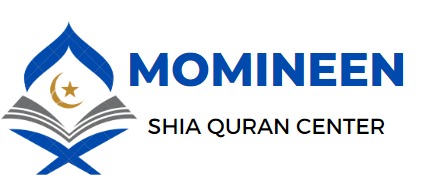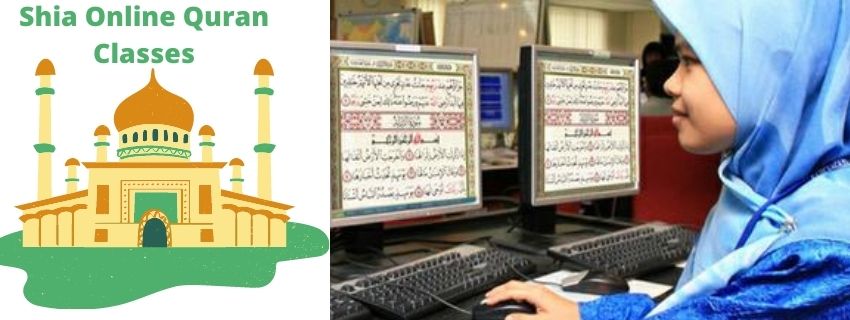In recent years, the emergence of online Shia Quran centers has revolutionized the approach to religious education and practice within the Shia Muslim community. This digital shift has not only made learning more accessible but has also fostered a sense of global unity among believers. As we delve into the rise of these online platforms, we explore how they have transformed traditional learning, connected diverse communities, and navigated the complexities of imparting sacred knowledge in the digital age.
Key Takeaways
- Online Shia Quran centers represent a significant digital transformation, moving from traditional madrasas to virtual classrooms and embracing modern technology.
- These platforms offer an in-depth understanding of Shia Islam, accommodating diverse communities and providing interactive experiences through webinars and live sessions.
- The social impact is profound, as online centers foster global Shia networks, break down geographical barriers, and empower marginalized communities.
- Challenges such as maintaining authenticity, debates over traditional versus modern learning methods, and cybersecurity concerns are part of the online religious education landscape.
- The future of faith-based e-learning is poised for innovation, with potential advancements in AI and a continued evolution of online spiritual growth.
The Digital Transformation of Religious Learning
From Traditional Madrasas to Virtual Classrooms
Gone are the days when the pursuit of religious knowledge meant sitting in a circle around a scholar, within the walls of a madrasa. Now, with a click or a tap, students of faith are diving into the teachings of the Quran from the comfort of their own homes. The shift to online Shia Quran centers is more than just a change of scenery; it’s a revolution in how knowledge is shared and received.
- Accessibility to a wider audience, regardless of location
- Flexible scheduling to accommodate diverse lifestyles
- Preservation of traditional teachings through digital means
The beauty of this digital transformation lies not only in its convenience but also in its ability to connect learners from all corners of the globe. It’s about keeping the essence of the learning experience intact while breaking free from the physical constraints of traditional madrasas.
While the essence of learning remains, the methods have evolved. Interactive tools, online resources, and virtual discussions have replaced chalkboards and textbooks. This isn’t just a trend; it’s the new reality for religious education, one that’s here to stay.
Tech-Savvy Scholars: Embracing Modernity
In the realm of religious education, a new breed of scholars is emerging. These tech-savvy educators are not just versed in the ancient texts, but also in the latest digital tools and platforms. They’re bringing a fresh perspective to the table, one that marries tradition with technology.
They’re pioneering online courses, utilizing social media for outreach, and even developing apps to make learning more accessible. It’s a game-changer for students who can now tap into a wealth of knowledge right from their smartphones.
- Online courses offer flexibility and a personalized pace.
- Social media connects learners with a global community.
- Apps provide interactive and engaging study tools.
The digital landscape is vast, and these scholars are navigating it with purpose, ensuring that the essence of the teachings is not lost in translation. They’re not just adapting; they’re leading the charge into a new era of religious learning.
The Convenience of Learning from Home
The shift to online Shia Quran centers has brought with it a level of convenience that traditional settings struggled to offer. No more long commutes or scheduling conflicts; now, the profound teachings of the Quran are just a click away, accessible from the comfort of your own space.
- Flexibility to choose learning times that fit your schedule
- No geographical limitations – learn from scholars across the globe
- Reduced costs with no need for physical materials or travel expenses
The intimacy of personal study combined with the accessibility of global scholarship creates a unique learning environment that can be tailored to individual needs and circumstances.
This new model of religious education not only accommodates busy lifestyles but also opens doors for those who may have been excluded from traditional learning due to physical, financial, or social constraints. It’s a game-changer, making the pursuit of spiritual knowledge more inclusive than ever before.
Understanding Shia Islam Through Online Platforms
The Core Beliefs and Practices
Diving into the heart of Shia Islam, it’s like opening a treasure chest of rich traditions and deep spiritual insights. At the core, it’s all about the love and following of the Prophet Muhammad’s family, the Ahl al-Bayt. Online platforms have made understanding these principles more accessible than ever.
- Tawheed (Oneness of God)
- Adalah (Justice of God)
- Nubuwwah (Prophethood)
- Imamat (Leadership)
- Qiyamah (Day of Judgment)
These five pillars shape the Shia Islamic worldview, and online centers are offering interactive courses that bring these concepts to life, right from the comfort of your couch.
The beauty of these online centers is that they don’t just stop at theory. They provide practical guidance on daily prayers, fasting during Ramadan, and the significance of religious events like Ashura. It’s a blend of timeless wisdom served on a digital platter, catering to a generation that’s always online.
Diverse Shia Communities on the Web
The internet is a melting pot of cultures, and this holds true for the Shia communities that have found a new home online. From bustling forums to serene study groups, the web is teeming with spaces where Shias from all walks of life converge to share, learn, and grow in their faith. It’s a colorful tapestry of traditions and perspectives, each thread as vital as the next.
- Lebanese Shias discussing the nuances of their heritage
- Iranians exploring the rich history of Shia scholarship
- South Asians sharing cultural practices and religious observances
These are just a few snapshots of the vibrant online Shia mosaic. The beauty of these digital gatherings is their inclusivity; no matter where you’re from or how you practice, there’s a place for you in the virtual ummah.
The ease of access and the anonymity of the web have allowed for a blossoming of Shia thought and fellowship that might have been stifled elsewhere. This is not just about religious education; it’s about building a community that transcends physical borders.
Interactive Learning: Webinars and Live Sessions
The shift to online platforms has revolutionized the way Shia Islamic education is delivered. Webinars and live sessions have become a staple, allowing for real-time interaction between students and scholars. This interactive approach not only enriches the learning experience but also brings a sense of community to the virtual classroom.
- Webinars offer structured lessons on various topics, from Quranic exegesis to ethical living.
- Live sessions facilitate Q&A, discussions, and even live recitations, making the learning process more dynamic and engaging.
The beauty of these sessions lies in their accessibility. Regardless of where you are, you can connect, learn, and grow in your faith.
The convenience and flexibility of these online sessions mean that more people than ever can explore and deepen their understanding of Shia Islam. It’s a testament to how technology can enhance spiritual education and bring believers together, transcending physical boundaries.
The Social Impact of Online Shia Quran Centers
Fostering Global Shia Networks
The rise of online Shia Quran centers has been a game-changer for community building. It’s like the whole world’s become a neighborhood, where Shias from every corner can connect, share, and learn together. This digital revolution has made it possible for individuals to join a global network, transcending the limitations of physical distance.
- Strengthening bonds between diverse Shia communities
- Facilitating the exchange of knowledge and cultural practices
- Offering support and guidance across countries
The sense of unity and solidarity that’s emerging is truly inspiring. It’s not just about learning; it’s about growing together as a global family.
These online platforms aren’t just about religious education; they’re hubs of social interaction. They’re places where friendships are formed, where support systems are built, and where the Shia identity is celebrated and reinforced across borders.
Breaking Down Geographical Barriers
The rise of online Shia Quran centers has been a game-changer for believers across the globe. No longer bound by physical distances, students and scholars can connect, learn, and share knowledge irrespective of their location. This digital leap has made religious education more accessible than ever before.
- Accessibility for remote learners
- Cross-cultural exchange of ideas
- Unified learning experiences for dispersed communities
The beauty of this digital era is that a student in a remote village can now access the same resources as someone in a bustling city. It’s about leveling the playing field and bringing people together.
The impact is profound, especially for those in regions where Shia communities are sparse or where political and social constraints limit religious expression. Online platforms are not just breaking down walls; they’re building bridges, fostering a sense of unity and shared purpose among the faithful.
Empowering Marginalized Communities
Online Shia Quran centers are more than just educational hubs; they’re beacons of hope for those often left on the fringes. They democratize access to religious education, enabling individuals from marginalized communities to learn and grow in their faith without facing the barriers that traditional settings might impose.
- Accessibility: No matter the location, resources, or mobility, online platforms are available to all.
- Affordability: Often less expensive than brick-and-mortar institutions, reducing financial strain.
- Anonymity: Allows those who may face discrimination to seek knowledge safely.
The beauty of these online centers lies in their ability to reach out and touch lives in ways that were previously unimaginable. They’re not just teaching verses and theology; they’re offering a lifeline to those who might otherwise remain voiceless in their spiritual journeys.
The impact is tangible, with many students expressing how these courses have not only educated them but also provided a sense of community and belonging. This is crucial in fostering self-esteem and a positive identity within the broader tapestry of Shia Islam.
Challenges and Controversies Surrounding Online Religious Education
Maintaining Authenticity in a Digital Space
In the realm of online Shia Quran centers, the question of authenticity is a hot topic. How do we keep the essence of traditional learning alive in the pixels and bytes of the digital world? It’s a delicate balance, trying to preserve the rich heritage and profound teachings of the Quran while making use of modern technology.
- Preservation of traditional methods: Ensuring that the core methodologies of teaching remain intact, even when translated to an online format.
- Qualified instructors: Selecting educators who are not only tech-savvy but also deeply rooted in Shia Islamic scholarship.
- Cultural sensitivity: Adapting to diverse online audiences while upholding the values and customs inherent to Shia Islam.
The digital space offers unparalleled access to knowledge, but it’s our responsibility to safeguard the authenticity of the teachings we impart. This means being vigilant about the content, the delivery, and the interaction that online platforms facilitate. It’s not just about transferring information; it’s about nurturing faith and understanding in a way that resonates with the timeless spirit of Islam.
Debates on Traditional vs. Modern Learning Methods
The shift from dusty books to digital screens has sparked quite the debate among the faithful. On one side, you’ve got the purists who argue that the essence of religious study is in the physical presence of a teacher and the tangible pages of the Quran. On the other, the modernists are all about the convenience and reach of online learning. It’s a classic case of tradition versus innovation, and both camps have their merits.
- Traditionalists emphasize the importance of face-to-face interaction and the spiritual ambiance of a madrasa.
- Modernists point out the accessibility and flexibility that online platforms offer, especially for those who can’t attend in person.
The heart of the matter is how to preserve the sacredness of the teachings while making them available to a wider audience.
The conversation isn’t just academic; it’s about how faith fits into our rapidly changing world. And let’s be real, it’s not going to be settled anytime soon. But that’s the beauty of it, isn’t it? The dialogue keeps the community vibrant and evolving.
Cybersecurity and Privacy Concerns
In the digital realm of religious education, cybersecurity and privacy concerns are not to be taken lightly. Online Shia Quran centers, like any other e-learning platforms, are susceptible to cyber threats that can compromise both the integrity of the teachings and the privacy of the participants.
- Ensuring secure connections for all users
- Regular updates to the platform’s security measures
- Educating users about safe online practices
The sanctity of religious learning is paramount, and protecting it in the online space is a complex but necessary challenge.
It’s crucial for these centers to establish robust security protocols and to keep their users informed about potential risks. This not only safeguards the learning experience but also builds trust within the online Shia community.
The Future of Faith-Based E-Learning
Innovations in Online Shia Islamic Studies
The realm of online Shia Islamic studies is buzzing with innovation, making the pursuit of spiritual knowledge more accessible than ever. Interactive tools and multimedia resources are transforming the way students engage with the Quran and Islamic teachings. Gone are the days of one-dimensional learning; now, students can experience a rich tapestry of scholarly work right at their fingertips.
- Virtual reality experiences that simulate historical Islamic events.
- Online libraries with vast collections of Shia literature.
- Language software tailored to understanding classical Arabic texts.
The integration of technology in religious studies isn’t just a trend; it’s a revolution in education that’s opening doors for learners across the globe.
The use of gamification techniques is another leap forward, turning the learning process into an interactive and motivational journey. With advancements like these, the future of faith-based e-learning is not just bright; it’s dazzling.
The Role of Artificial Intelligence in Religious Education
The integration of Artificial Intelligence (AI) in religious education is not just a futuristic concept; it’s happening right now. AI is revolutionizing the way we approach learning and understanding of religious texts, including the Quran. AI algorithms can analyze vast amounts of data, providing insights and personalized learning experiences that were once impossible.
- AI-powered chatbots for answering religious queries
- Machine learning for personalized study plans
- Algorithms that help in understanding complex religious texts
The potential of AI to tailor educational content to individual learning styles and paces is a game-changer. It means that students can engage with the material on a deeper level, making the learning process more effective and enjoyable.
However, with great power comes great responsibility. Ensuring that AI respects the nuances and sensitivities of religious teachings is paramount. As we navigate this new terrain, the balance between technology and tradition will be key to the successful implementation of AI in religious education.
Predicting the Next Wave of Online Spiritual Growth
As we surf the crest of the digital wave, the future of online spiritual growth looks more vibrant than ever. Innovative technologies are set to revolutionize how we connect with our faith.
- Virtual reality (VR) could offer immersive experiences of historical religious events.
- Augmented reality (AR) might bring new dimensions to understanding religious texts.
- Machine learning could personalize religious learning, adapting to individual’s understanding and pace.
The intersection of faith and technology is poised to create a more inclusive and accessible environment for spiritual exploration.
The next wave is also likely to see a surge in community-driven content, with believers from around the globe contributing to a rich, diverse tapestry of religious education. As we look to the horizon, it’s clear that the potential for online spiritual growth is as boundless as our collective imagination.
Embracing Digital Divinity: The Future of Online Shia Quran Learning
As we’ve journeyed through the digital landscape of faith, it’s clear that online Shia Quran centers are more than a fleeting trend. They’re a testament to the resilience and adaptability of religious education in the face of modern challenges. From the comfort of our homes, we’ve seen how these platforms offer a sense of community and personalized learning that traditional settings can struggle to match. As technology continues to evolve, so too will the ways we connect with our spirituality. The rise of online Shia Quran centers is not just about preserving traditions; it’s about reimagining them for a new generation. So, whether you’re a devout follower or simply curious about the teachings of the Quran, the digital world has opened its doors wide, inviting us all to explore faith in ways we never thought possible.
Frequently Asked Questions
What has led to the rise of online Shia Quran centers?
The rise of online Shia Quran centers is attributed to the digital transformation of society, where traditional religious learning is adapting to modern technology. This allows for greater accessibility and convenience, catering to a global audience seeking Islamic knowledge.
How do online Shia Quran centers differ from traditional madrasas?
Online Shia Quran centers offer virtual classrooms that provide flexibility and convenience, allowing students to learn from anywhere at any time. Unlike traditional madrasas, which require physical presence, online centers utilize technology to connect students with scholars and educational resources.
Can online platforms adequately convey the core beliefs and practices of Shia Islam?
Yes, online platforms can effectively convey the core beliefs and practices of Shia Islam through interactive content, structured courses, and live sessions with knowledgeable scholars. They offer a comprehensive learning experience that can be equivalent to in-person education.
What social impact do online Shia Quran centers have?
Online Shia Quran centers have a significant social impact by fostering global Shia networks, breaking down geographical barriers, and empowering marginalized communities with access to religious education and spiritual growth.
What are some of the challenges faced by online Shia Quran centers?
Challenges include maintaining the authenticity of religious teachings in a digital space, addressing debates on traditional vs. modern learning methods, and ensuring cybersecurity and privacy for students and educators.
How might the future of faith-based e-learning evolve?
The future of faith-based e-learning is likely to see further innovations, including the integration of artificial intelligence for personalized learning experiences, and a continued growth in online spiritual communities, shaping the next wave of online religious education.





